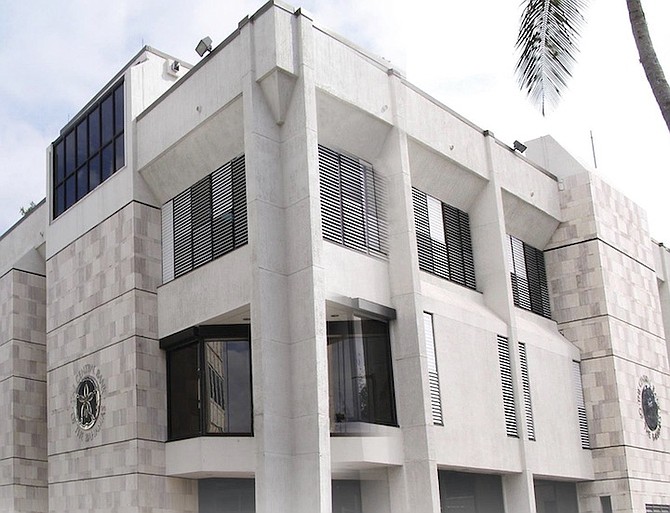By NEIL HARTNELL
Tribune Business Editor
nhartnell@tribunemedia.net
The Central Bank’s governor yesterday said the nearly-$3bn in Russian-connected assets held by the Bahamas’ international financial services industry represents “less than 1 percent” of the sector’s total business.
John Rolle, in an e-mailed reply after the regulator revealed that $420m in Russian-related deposits, and $2.5bn in custodial and trust assets, are currently held by its licensees, told Tribune Business: “We can’t disclose how much of the totals are held by sanctioned clients. However, the published sums are a very small fraction, under 1 percent, of the total business of banks and trust companies.”
He spoke after the Central Bank, in a statement, disclosed the extent of Russian-related assets held by Bahamas-based financial institutions that it regulates. “As an extension of its regular surveillance, the Central Bank has gathered data from international banks and trust companies on their level of Russian business activities,” the Central Bank said.
“The results of this exercise indicated as at February 28, 2022, this sector held approximately $420m in deposits and $2.5bn in custody or trust assets with ultimate beneficial owners from or connected to Russia.
“The greatest proportion of Russian exposure would be linked to the international sector. However, the Central Bank is currently canvassing domestic financial institutions - that is the commercial banks, money transmission business and electronic money service providers - to ascertain any level of exposure within those sectors.”
The Central Bank made clear that none of this near-$3bn sum was necessarily connected to the 121 sanctioned Russian individuals and entities it named last week. The last survey of the financial sector’s total contribution to the Bahamian economy, released in 2021 but based on 2020 data, revealed that international banking industry assets in The Bahamas totalled $153.3bn.
That places the $2.92bn Russian exposure at just 1.9 percent of the Bahamian sector’s total business portfolio. And Russian presence in the domestic banking industry, which had just under $11bn in assets, is likely to be negligible if non-existent.
Paul Moss, president of Dominion Financial Management, one of the few Bahamian-owned firms in the international sector, yesterday said: “I don’t think any Russian client will have an account with any domestic banks. I seriously doubt that you will find that. Knowing and seeing how they operate, I doubt they will have the patience to wait for bank accounts to be opened.
“Doing business with domestic banks, I don’t know how to describe it, but it’s counter-productive to doing business. I doubt people are going to want to do that, making an application to one of the banks.” Mr Moss, though, said the Central Bank’s announcement on the relatively minimal Russian presence in The Bahamas - although $3bn will be a lot to some - came as no surprise to himself.
“I always said we should remain neutral in all of this, and not be part of the sanctions,” he added. “The Bahamas has to carve out its role in foreign affairs, and we serve a better role by being neutral . Switzerland used to play that role. The Bahamas has to project itself as an independent, neutral country no matter what.”
The Attorney General’s Office, in a statement last week, listed 22 individuals - including Roman Abramovich, owner of the UK’s Chelsea football club - as well as 99 private and public Russian and Belarus entities now subject to sanctions.
It has instructed all regulators to “request their licensees and registrants to perform a search of their database and register of beneficial owners for any of the individuals or entities named”, with such findings to be referred to the Attorney General’s Office.
The Bahamas, as a major international financial centre (IFC), has come under growing pressure from the US, its major trading partner, to act in imposing sanctions over the Ukraine invasion. The Davis administration had been hoping to act in concert with other CARICOM members, but has now moved on its own after a common position failed to develop yet.
The Ministry of Foreign Affairs, in a statement last week, said the matter was “an evolving story and remains under active review”. It added that discussions with other CARICOM members continued. And the financial services regulators - in a joint statement - said that given “due consideration to [the] interests of this jurisdiction and the financial services sector operating within it” they had to ban all dealings with those sanctioned by the US, UK, Canada and European Union (EU).
“The agencies comprising the group of financial services regulators (GFSR) hereby direct regulated entities that are licensed or authorised to operate from or within The Bahamas not to engage in transactions with sanctioned persons, entities or businesses linked to Russia and Belarus,” said the statement.
“Regulated entities should apply the highest level of risk management controls to deter the potential for any misuse of the Bahamian financial system in the current global environment and, indeed, every circumstance.” The statement was issued on behalf of the Central Bank, Securities Commission, Insurance Commission, Gaming Board and Compliance Commission.
The Central Bank, in a further statement, said this action was designed to “prohibit business activities with parties sanctioned by the US and other identified western countries in response to the war in Ukraine. The Attorney General has also published directions for the financial services regulators to report information from supervised financial institutions on any exposures to a list of parties named in sanctions”.





Comments
Candor 3 years, 11 months ago
But nearly 33% of the Bahamas National Debt !!
Sign in to comment
OpenID